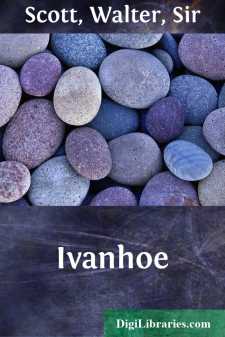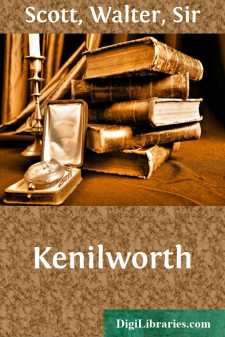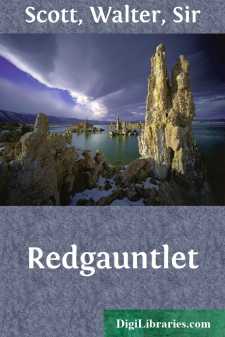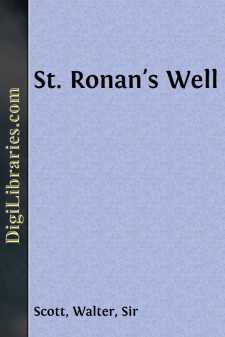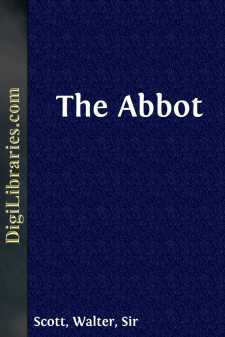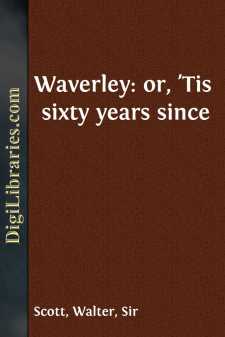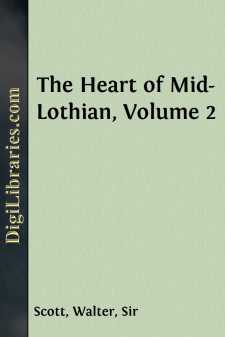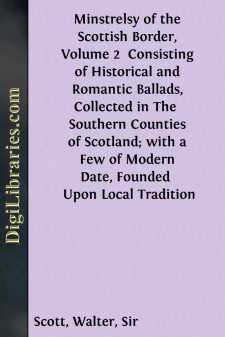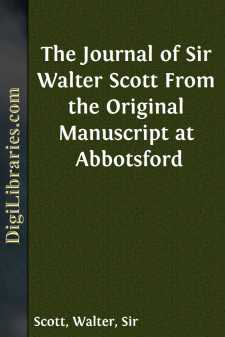Categories
- Antiques & Collectibles 13
- Architecture 36
- Art 48
- Bibles 22
- Biography & Autobiography 813
- Body, Mind & Spirit 142
- Business & Economics 28
- Children's Books 16
- Children's Fiction 13
- Computers 4
- Cooking 94
- Crafts & Hobbies 4
- Drama 346
- Education 46
- Family & Relationships 57
- Fiction 11829
- Games 19
- Gardening 17
- Health & Fitness 34
- History 1377
- House & Home 1
- Humor 147
- Juvenile Fiction 1873
- Juvenile Nonfiction 202
- Language Arts & Disciplines 88
- Law 16
- Literary Collections 686
- Literary Criticism 179
- Mathematics 13
- Medical 41
- Music 40
- Nature 179
- Non-Classifiable 1768
- Performing Arts 7
- Periodicals 1453
- Philosophy 64
- Photography 2
- Poetry 896
- Political Science 203
- Psychology 42
- Reference 154
- Religion 513
- Science 126
- Self-Help 84
- Social Science 81
- Sports & Recreation 34
- Study Aids 3
- Technology & Engineering 59
- Transportation 23
- Travel 463
- True Crime 29
Walter Scott
Sir Walter Scott (1771-1832) was a Scottish novelist, poet, historian, and biographer who is considered one of the most influential figures in Scottish literature. He is renowned for his historical novels such as "Ivanhoe," "Rob Roy," and "Waverley," which romanticized Scottish history and folklore. Scott's works played a significant role in the development of the historical novel genre and had a lasting impact on literature and cultural identity in Scotland.
Author's Books:
Sort by:
by:
Walter Scott
The Author of the Waverley Novels had hitherto proceeded in an unabated course of popularity, and might, in his peculiar district of literature, have been termed "L'Enfant Gate" of success. It was plain, however, that frequent publication must finally wear out the public favour, unless some mode could be devised to give an appearance of novelty to subsequent productions. Scottish manners,...
more...
by:
Walter Scott
CHAPTER I. I am an innkeeper, and know my grounds,And study them; Brain o' man, I study them.I must have jovial guests to drive my ploughs,And whistling boys to bring my harvests home,Or I shall hear no flails thwack. THE NEW INN. It is the privilege of tale-tellers to open their story in an inn, the free rendezvous of all travellers, and where the humour of each displays itself without ceremony...
more...
by:
Walter Scott
DARSIE LATIMER TO ALAN FAIRFORDDUMFRIES.CUR ME EXANIMAS QUERELIS TUIS? In plain English, Why do you deafen me with your croaking? The disconsolate tone in which you bade me farewell at Noble House, [The first stage on the road from Edinburgh to Dumfries via Moffat.] and mounted your miserable hack to return to your law drudgery, still sounds in my ears. It seemed to say, 'Happy dog! you can ramble...
more...
by:
Walter Scott
“‘St. Ronan's Well’ is not so much my favourite as certain of its predecessors,” Lady Louisa Stuart wrote to Scott on March 26, 1824. “Yet still I see the author's hand in it, et c'est tout dire. Meg Dods, the meeting” (vol. i. chap. ix.), “and the last scene between Clara and her brother, are marked with the true stamp, not to be matched or mistaken. Is the Siege of...
more...
by:
Walter Scott
From what is said in the Introduction to the Monastery, it must necessarily be inferred, that the Author considered that romance as something very like a failure. It is true, the booksellers did not complain of the sale, because, unless on very felicitous occasions, or on those which are equally the reverse, literary popularity is not gained or lost by a single publication. Leisure must be allowed for...
more...
by:
Walter Scott
INTRODUCTION—(1829) The plan of this Edition leads me to insert in this place some account of the incidents on which the Novel of WAVERLEY is founded. They have been already given to the public, by my late lamented friend, William Erskine, Esq. (afterwards Lord Kinneder), when reviewing the 'Tales of My Landlord' for the QUARTERLY REVIEW, in 1817. The particulars were derived by the Critic...
more...
by:
Walter Scott
INTRODUCTION TO THE TALISMAN. The "Betrothed" did not greatly please one or two friends, who thought that it did not well correspond to the general title of "The Crusaders." They urged, therefore, that, without direct allusion to the manners of the Eastern tribes, and to the romantic conflicts of the period, the title of a "Tale of the Crusaders" would resemble the playbill,...
more...
by:
Walter Scott
CHAPTER FIRST. Isab.—Alas! what poor ability's in meTo do him good?Lucio.—Assay the power you have.Measure for Measure. When Mrs. Saddletree entered the apartment in which her guests had shrouded their misery, she found the window darkened. The feebleness which followed his long swoon had rendered it necessary to lay the old man in bed. The curtains were drawn around him, and Jeanie sate...
more...
by:
Walter Scott
LESLY'S MARCH. "But, O my country! how shall memory trace"Thy glories, lost in either Charles's days,"When through thy fields destructive rapine spread,"Nor sparing infants' tears, nor hoary head!"In those dread days, the unprotected swain"Mourn'd, in the mountains, o'er his wasted plain;"Nor longer vocal, with the shepherd's lay,"Were...
more...
by:
Walter Scott
NOVEMBER. [Edinburgh,] November 20, 1825.—I have all my life regretted that I did not keep a regular Journal. I have myself lost recollection of much that was interesting, and I have deprived my family and the public of some curious information, by not carrying this resolution into effect. I have bethought me, on seeing lately some volumes of Byron's notes, that he probably had hit upon the...
more...


